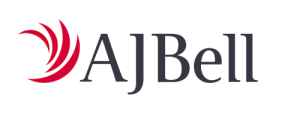During October, our net asset value return was -1.9% and shareholder returns were -3.7%, in comparison to the FTSE All-World Index return of -2.4%.
October was another weak month for equity markets, with the conflict in the Middle East giving rise to a resurgence in concerns around geopolitical risks. The conflict has presented a terrible spectacle in terms of humanitarian costs, with immediate implications for commodity markets, notably gold (+7.3%), which saw its strongest month since the US regional banking crisis in March this year. Oil prices moved higher due to speculation that the conflict may trigger further unrest across the Arab world, with secondary effects in the form of mass protests becoming a mounting concern for the region. Elsewhere, yields continued to trend higher, with the US 10-year yield testing 5% for the first time since 2007 in response to another strong round of US economic data.
Across regions, US shares delivered the strongest performance across key markets (-1.7%), reflecting the resilience of technology stocks this month relative to other sectors. US exceptionalism has persisted through the third-quarter earnings season, with over 81% of S&P 500 companies thus far announcing upside surprises to earnings estimates. European corporates are lagging their US counterparts this year, with year-on-year earnings-per-share growth currently negative for Europe at -13%, versus +2% for the US. While around 30% of S&P 500 companies are yet to report third-quarter results, as of month-end, nearly 95% of technology companies within the index have beaten consensus earnings estimates. Given technology firms constitute almost one-third of the S&P 500 Index, resilience in this segment of the market has proved particularly supportive of US share-price performance this year. During October, European and UK shares declined by 3.2% and 3.8%, respectively, with lower oil prices (-3.8%) a key headwind for the UK equity market. Indeed, third-quarter earnings for UK energy giants, BP and Shell, both disappointed consensus estimates in October, with aggregated sales approximately 6% lower than previously anticipated. Chinese shares also performed poorly in October (-3.8%). This was despite stronger retail sales and the announcement of summit talks in November between US President Joe Biden and Chinese President Xi Jinping – the first engagement between the leaders during what has been a tension-filled 2023.
Tesla Motors (-19.3%), which is held at an underweight relative to the benchmark, was the most significant positive contributor to relative returns in October. This is on the back of much softer-than-expected earnings for the car marker, with third-quarter deliveries coming in 10% lower than anticipated at the start of the year. Despite implementing c.15-20% price cuts across its line-up, Tesla has not seen a coincident and equivalent rise in sales, with automotive revenue growth of just c.5% now at a multi-year low. This is substantially lower than peers, General Motors and Ford, which have delivered revenue growth of c.25% and c.12%, respectively, during recent quarters. The Trust’s overweight position in digital infrastructure provider, Vertiv Holdings (+6.2%), continues to perform well, with recent revenues and earnings beating analyst estimates. Vertiv was the Trust’s top performer during the third quarter, and is well positioned to benefit from secular demand in datacentres arising from the need for faster artificial-intelligence computing. In contrast, the Trust’s small underweight position in Microsoft (+7.7%) was the principal drag on performance in October after the company reported good results. Results for all of Microsoft’s business segments came in better than the top end of guidance, with revenues from its intelligent cloud unit, Azure, rising by nearly 30% year-on-year. The Trust’s meaningful Apple (+0.3%) underweight also detracted from relative returns, despite lacklustre top-line momentum across key products including the iPhone, where its deep market share is making growth increasingly challenging.
We ended the month at a discount of 10.8%, widening from a discount of 9.1% at the end of September. Net gearing continued to be conservative, at 5.4% (with debt at fair value) for month-end, reflecting our view that valuations remain rich across key market segments and earnings expectations remain overly optimistic, given interest rates are set to remain higher for longer. Nonetheless, F&C Investment Trust’s corporate structure makes us well-placed to withstand further market volatility, and we remain focused on the long-term opportunities for the benefit of our shareholders.










